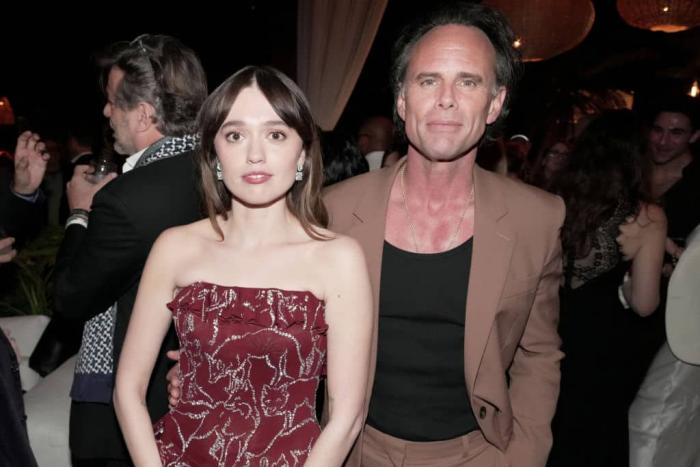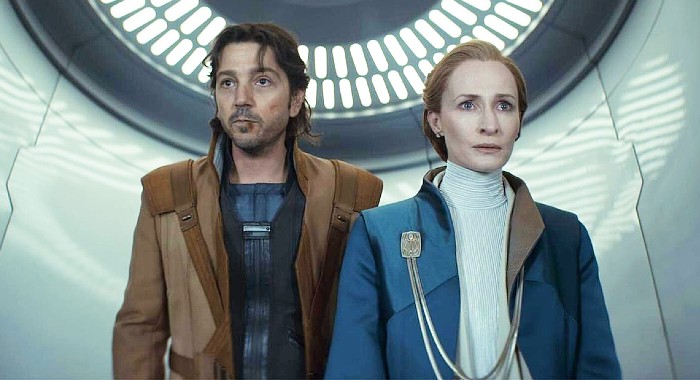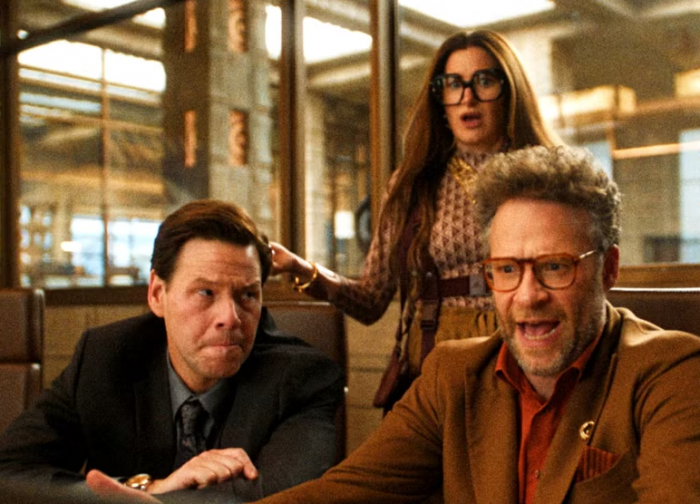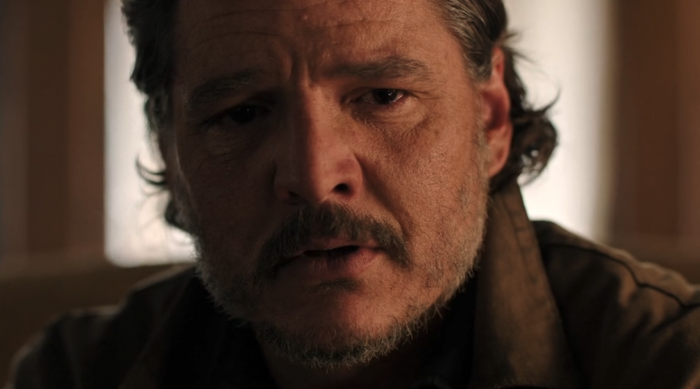
Joss Whedon Finally Has Something To Say
By Brian Richards | Celebrity | January 18, 2022
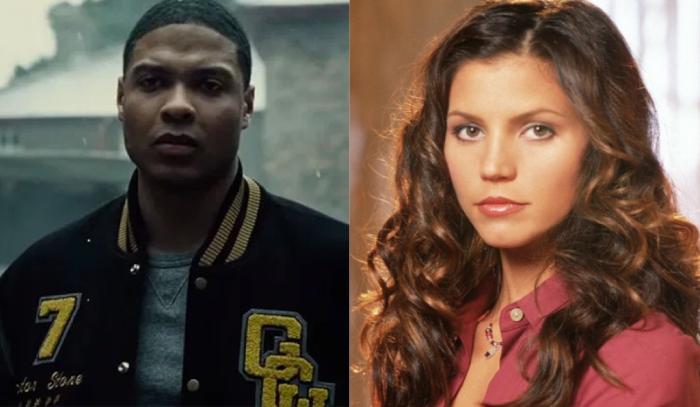
It all started back in March of 2017, when Zack Snyder decided to step down from his duties as director of the upcoming superhero film Justice League, so that he could be with his family after his 20-year-old daughter, Autumn, died by suicide.
Toby Emmerich, president of Warner Bros. Pictures, publicly expressed his sadness and his support for Snyder and his family, and it was soon announced that Joss Whedon, fresh off the success of The Avengers and Avengers: Age of Ultron, had been approached to take over as director and complete production of the film. Warner Bros. was hoping for Joss to do for the Justice League what he had done for The Avengers: create a massively successful blockbuster that would entertain audiences, gain positive reviews from critics, silence any and all complaints about the DCEU being too dark and grim and humorless, and also make Warner Bros. a billion dollars or more at the box office. On November 17, 2017, Joss Whedon’s version of Justice League (which is usually referred to on the Internet as Josstice League) opened in theaters. It received mixed-to-negative reviews from critics, and only made $658 million worldwide at the box office, which wasn’t nearly enough to make the shotcallers at Warner Bros. very happy.
As to what came next, following the critical and box-office failure of Joss Whedon’s Justice League: Zack and his wife, producer Deborah Snyder, announcing that “the Snyder Cut” of Justice League that fans had been asking and begging for would finally see the light of day and be released on HBO Max; Ray Fisher (who played Victor Stone/Cyborg in both Snyder’s and Whedon’s versions of the film) told the world that Joss was abusive towards him and to others on the set of the film, and that producers gave him free rein to say and do whatever he wanted; several actresses who worked with Joss in the past (Charisma Carpenter, Amber Benson, Michelle Trachtenberg, and Sarah Michelle Gellar) confirmed that much of his behavior towards them was abusive, and that he created a toxic work environment for both cast and crew; and Zack Snyder’s Justice League premiering on HBO Max to mostly positive reviews and providing impressive ratings numbers worldwide.
Throughout all of this, Joss had remained silent, and said nothing at all to defend himself from what was being said and written about him in regards to his behavior on the sets of his television shows, and his behavior on the set of Justice League when doing reshoots. That silence ended yesterday morning when Vulture published their interview with Joss Whedon, in which he sat down with journalist Lila Shapiro, and finally spoke out about the damage that has been done to his career and his reputation, and how far too many of his accusers have no idea what the f-ck they are talking about.
The interview is a long one, but here are some notable snippets that grabbed people’s attention all over social media yesterday and made them say several variations of…

And also…
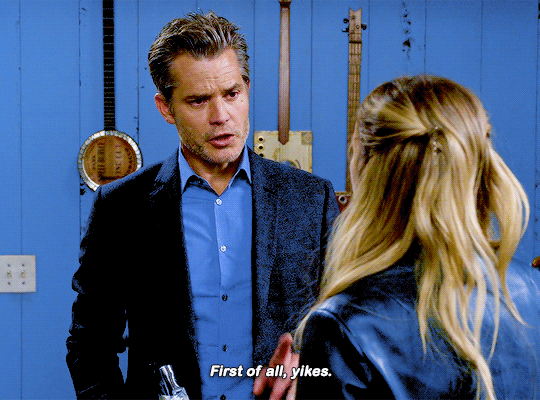
For starters, there was this description of Joss in his Santa Monica home where he meets Shapiro, and states that he’d prefer the interview to be conducted indoors as opposed to outside.
This past spring, Whedon invited me to spend a couple of afternoons with him at his home in Los Angeles. By then, I had spoken with dozens of people who knew him; after months of agonizing over whether to grant my request for an interview, he had decided to talk, too. Whedon, 57, lives in Santa Monica, 13 blocks from the ocean, on a street lined with magnolia trees and $5 million homes. His house is open, airy, modern. He sat hunched over on a black leather couch, his fingers clicking together, the thumbs tapping each of the other digits in quick succession whenever the conversation shifted toward his recent troubles. Pale and angular with bags under his eyes, he no longer much resembled the plump-cheeked Puck who once impishly urged a profile writer to describe him as “doughy” and “jowly.” It was a perfect day in Santa Monica, as almost every day in Santa Monica is. But Whedon wanted to stay inside. Gazing through a wall of glass at his lush backyard, he announced in his quiet rumble of a voice that he was thinking of getting curtains. “The sun is my enemy,” he said.
Okay, Nosferatu. If that line about the sun being your enemy was meant to be a joke and a humorous ice-breaker to get things started, it went about as well as when Storm asked one of her enemies if he knows what happens to a toad when it gets struck by lightning.
He then shared a traumatic story from his childhood, in which a playmate of his was found dead on the property owned by his parents.
When he was 5, a 4-year-old boy, the son of family friends, disappeared on his parents’ property upstate. Eventually, his body was found; he had drowned in the pond. Years later, as a teenager, Whedon remembered he had called the boy over to the pond to play with him. After getting bored, he had walked away, leaving the boy alone by the water. “I didn’t think it was my fault,” Whedon said. “I knew I was 5. But it doesn’t just disappear as a thought.” It took him another 30 years, he said, before another thought dawned on him: Even after the incident, his parents never taught him to swim. “There was no structure,” he said. “There was no safety.”
Cynthia Bergstrom, the costume designer for Buffy The Vampire Slayer, described one incident where a difference of opinion between her and Joss that was being expressed verbally suddenly turned into a physical confrontation.
Buffy costume designer Cynthia Bergstrom recalled an incident that happened during the filming of season five. In one episode, Spike asks a sadistic science nerd to create a sex-robot version of the Slayer. Whedon and Gellar did not agree on what the Buffy-bot should wear. “Sarah was adamant about it being a certain way,” Bergstrom said. “The costume she wanted was a bit grandma-ish — a pleated skirt and high neck. He definitely wanted it to be sexier.” On the day Gellar tried the different options, Whedon grew frustrated. “I was like, ‘Joss, let’s just get her dressed,’ ” Bergstrom recalled. “He grabbed my arm and dug in his fingers until his fingernails imprinted the skin and I said, ‘You’re hurting me.’ “
Then there was the time when Joss was on the set of Firefly, and wasn’t entirely impressed with a script that was submitted by one of the show’s writers. Instead of expressing his concern and/or disapproval with that writer in private, he decided to embarrass her in front of the entire writing staff.
A Firefly writer remembered him belittling a colleague for writing a script that wasn’t up to par. Instead of giving her notes privately, he called a meeting with the entire writing staff. “It was basically 90 minutes of vicious mockery,” the writer said. “Joss pretended to have a slide projector, and he read her dialogue out loud and pretended he was giving a lecture on terrible writing as he went through the ‘slides’ and made funny voices — funny for him. The guys were looking down at their pages, and this woman was fighting tears the entire time. I’ve had my share of shitty showrunners, but the intent to hurt — that’s the thing that stands out for me now.”
Joss was also known on set for having affairs with two actresses from Buffy, and for making little to no attempt at trying to hide that from others on set.
A high-level member of the Buffy production team recalled Whedon’s habit of “writing really nasty notes,” but that wasn’t what disturbed her most about working with him. Whedon was rumored to be having affairs with two young actresses on the show. One day, he and one of the actresses came into her office while she was working. She heard a noise behind her. They were rolling around on the floor, making out. “They would bang into my chair,” she said. “How can you concentrate? It was gross.” This happened more than once, she said. “These actions proved he had no respect for me and my work.” She quit the show even though she had no other job lined up.
Joss also spoke about what had happened between him and Charisma Carpenter, while also calling bullsh-t on the other allegations regarding Bergstrom and his on-set affairs.
The story of Whedon’s conflict with Carpenter is less obscure. The actress has been talking about it with fans and reporters for more than a decade. The tensions with Whedon developed well before her pregnancy. By her own account, she suffered from extreme anxiety and struggled to hit her marks and memorize her lines; Whedon, obsessed with word-perfect dialogue, was not always patient. After she moved over to Angel, she got a tattoo of a rosary on her wrist even though her character was working for a vampire, a creature repelled by crosses. Another time, she chopped off her long hair in the middle of filming an episode. In her Twitter post, Carpenter seemed to blame Whedon for her performance problems. She wrote that his cruelty intensified her anxiety. She got the tattoo, she explained, to help her feel “spiritually grounded” in a volatile work environment.Whedon acknowledged he was not as “civilized” back then. “I was young,” he said. “I yelled, and sometimes you had to yell. This was a very young cast, and it was easy for everything to turn into a cocktail party.” He said he would never intentionally humiliate anyone. “If I am upsetting somebody, it will be a problem for me.” The costume designer who said he’d grabbed her arm? “I don’t believe that,” he said, shaking his head. “I know I would get angry, but I was never physical with people.” Had he made out with an actress on the floor of someone’s office? “That seems false. I don’t understand that story even a little bit.” He removed his glasses and rubbed his face. “I should run to the loo.” When he came back, he said the story didn’t make sense to him because he “lived in terror” of his affairs being discovered.
He had some regrets about how he spoke with Carpenter after learning she was pregnant. “I was not mannerly,” he said. Still, he was bewildered by her account of their relationship. “Most of my experiences with Charisma were delightful and charming. She struggled sometimes with her lines, but nobody could hit a punch line harder than her.” I asked if he had called her fat when she was pregnant. “I did not call her fat,” he quickly replied. “Of course I didn’t.”
Despite claiming that he had never made disparaging comments to Charisma about her weight, there was another former colleague who accused him of making fatphobic comments towards her.
Rebecca X, as she asked to be called, was known as Rebecca Rand Kirshner when she wrote for the last three seasons of Buffy; since then, she has dropped her “patriarchal last name.” She saw Whedon at a photo shoot a few years after the show ended, when she was weeks away from giving birth. “I was happy to see Joss, and the first thing he said to me was, ‘Oh, you’re fat,’ ” she told me. She knew he was joking, but she didn’t find it very funny. “Did it hurt me? Yes. Did I say, ‘Hey, I got a baby in here, what’s your excuse?’ In so many unsaid words, yes. But I think he was actually slim at that point. My point is, it was a dick move. But I wouldn’t call it abuse.”
When Joss continued to be asked about his extramarital affairs, he basically confirmed that he became the dreaded cliché of the awkward and unpopular nerd who behaves like a ruthless and aggressive jock once they achieve the slightest bit of power and success.
On our second day of interviews, I asked Whedon about his affairs on the set of Buffy. He looked worse than he had the day before. His eyes were faintly bloodshot. He hadn’t slept well. “I feel fucking terrible about them,” he said. When I pressed him on why, he noted “it messes up the power dynamic,” but he didn’t expand on that thought. Instead, he quickly added that he had felt he “had” to sleep with them, that he was “powerless” to resist. I laughed. “I’m not actually joking,” he said. He had been surrounded by beautiful young women — the sort of women who had ignored him when he was younger — and he feared if he didn’t have sex with them, he would “always regret it.” Looking back, he feels shame and “horror,” he said. I thought of something he had told me earlier. A vampire, he’d said, is the “exalted outsider,” a creature that feels like “less than everybody else and also kind of more than everybody else. There’s this insecurity and arrogance. They do a little dance.”Buffy ended in 2003, but his affairs did not. He slept with employees, fans, and colleagues. Eventually, his wife found out. In 2012, they split up. In Cole’s open letter to fans, she accused him of using feminism as a cover for his infidelities. “He always had a lot of female friends, but he told me it was because his mother raised him as a feminist, so he just liked women better,” she wrote. After learning he had been deceiving her for 15 years, she was diagnosed with complex PTSD, the same condition as him. “I want the people who worship him to know he is human,” she concluded.
The interview then went into excruciating detail about Joss’s relationships after his divorce, and how his behavior towards his partners left a whole lot to be desired. He began a sexual relationship with a 22-year-old freelance writer named Sarah, who had no idea that Joss was already seeing someone else, and that the “someone else” he was seeing was a friend that he wanted Sarah to meet and hang out with; he secretly dated a 23-year-old television writer named Erin Shade for a year-and-a-half before she had her first-ever sexual experience with him, and this was after he paid her $2,500 to come over to his house for the weekend and watch him write (and to not tell her bosses on Agents Of S.H.I.E.L.D., where she was then working as a showrunner’s assistant, about any of this); and also began dating an author/sex educator/dominatrix named Arden Leigh, whose dominant/submissive relationship with Joss ended when he arrived at her house and broke up with her hours before her birthday. (FYI: Arden wrote a book called The New Rules Of Attraction, in which she admitted that one of her very worst memories was when a boyfriend had broken up with her on her birthday, a book that Joss had read and discussed with Arden long before they had broken up.)
Also…what in the Cinnamon Toast f-ck is this?!?!
Joss “is a layered and complex communicator,” one longtime collaborator told me. “His tone is deflecting, it’s funny, it’s got wordplay, rhyme, quote marks, some mumbles, self-deprecation, a comic-book allusion, a Sondheim allusion, and some words they only use in England. This means you, the recipient, have to do some decoding. You have to decide if there was a message in there that was meant to correct you, sting you, rib you affectionately, or shyly praise you.”

Joss then discussed his experience directing the reshoots for Justice League, an experience he says he now regrets. This is where the interview gets even uglier and more unpleasant.
One crew member said that the cast and crew had trouble adjusting to Joss’s strict “Say the lines in the script exactly as they are written” style of directing as opposed to Zack Snyder’s more relaxed style of directing where he’d allow the cast to improvise dialogue if necessary. According to that same crew member, it got to the point where Joss stopped filming and told the cast that he had never worked with “a ruder group of people.” He then went on to say that his conflict with Ray Fisher was because Fisher gave notes to Joss about his performance as Cyborg that Joss apparently had no interest in acknowledging, and went on to describe him as “…a malevolent force … a bad actor in both senses.” He also implied that Fisher was being manipulated by Snyder to believe that Joss’s behavior towards him on set was racist even though it wasn’t, and that the two of them had “manufactured a controversy” to distract others from the fact that Snyder’s original cut of Justice League supposedly had negative buzz attached to it.
The fact that Joss would say this about Ray Fisher, or any other Black actor, and to have this quote be published by New York magazine on Martin Luther King Jr. Day, of all days, left a lot of people on social media, particularly Black people, feeling pissed the f-ck off. Especially to have Joss not only insult Fisher by referring to him as a ‘malevolent force’ as if he’s the Smoke Monster from Lost, but to also insult his acting ability when numerous reviews from both critics and the public have stated that his performance as Cyborg is one of the very best things about Zack Snyder’s Justice League, and that it never should’ve altered with the way it was in the theatrical cut.
Joss didn’t do a better job when describing the reasons for his conflict with Gadot, who has confirmed allegations that he had threatened her, and said that he would do things that would make her career miserable. He said that she misunderstood what he said to her since “English is not her first language, and I tend to be annoyingly flowery in my speech.” Yes, you read that correctly, and yes, he actually did say that.
He recalled arguing over a scene she wanted to cut. He told her jokingly that if she wanted to get rid of it, she would have to tie him to a railroad track and do it over his dead body. “Then I was told that I had said something about her dead body and tying her to the railroad track,” he said.
Gadot’s response to this when she was contacted about this interview via e-mail? “I understood perfectly. I will never work with him, and would never suggest any of my peers work with him in the future.” (If I had to guess, the scene that they were arguing about was the one in which The Flash accidentally falls on top of Wonder Woman, with his face landing in her cleavage)
The Joss Whedon interview had all of social media talking. If Joss was expecting readers to take his side, to have greater empathy for him and for what he’s been through, and to start the process of welcoming him back with open arms … the responses on Twitter would probably leave him feeling very disappointed.
Whew, that Joss Whedon interview. A masterclass in avoiding responsibility for his mistakes.
— Sarah Rappaport (@SarahRapp) January 17, 2022
The fact that other adults on Buffy had to make a rule that Joss Whedon wasn’t allowed to be in a room alone with then 16 year old Michelle Trachtenberg is a problem. Joss Whedon should not have gotten work after that.
— Arakki Thottie (@BlckBolex) January 17, 2022
Joss Whedon took years to reflect and he’s finally ready to tell his story: “I had to do it. I was very very horny”
— Vinnie Mancuso (@VinnieMancuso1) January 17, 2022
Everything you’ve read or will probably read today about Joss Whedon and his racist and abusive behavior didn’t just happen.
— Walt (@Uber_Kryptonian) January 17, 2022
Producers and execs like Geoff Johns, Toby Emmerich, and Jon Berg enabled Whedon’s behavior. They are just as much to blame.#IStandWithRayFisher
Wow. It should go without saying that #IStandWithRayFisher and every person Joss has abused and harmed with his toxic behavior.
— Nadria✨👑 (@NadriaTucker) January 17, 2022
People who are cruel and powerful tend to see themselves as victims. That’s my takeaway.
— Zak Penn (@zakpenn) January 18, 2022
The above tweet came from screenwriter Zak Penn, who wrote the original draft of The Avengers before Joss was hired and made it very clear that he was unimpressed with most of what Penn wrote, before starting over with his own screenplay, and rewriting the entire film as he saw fit.
You can disagree with Gal Gadot's politics without defending Joss Whedon's misogynist treatment of her.
— Jessica Price (@Delafina777) January 17, 2022
He wasn't threatening to ruin her career on behalf of Palestinians, folks.
I guess Joss Whedon's comeback strategy is to gaslight Ray Fisher on Martin Luther King Jr. Day? pic.twitter.com/jRa1Lt3iVA
— ☕Stephen M. Colbert (@smcolbert) January 17, 2022
Joss trying to tell us that Ray Fisher is a bad actor AFTER we’ve seen The Snyder Cut sure is… a choice.
— Alex Stedman (@a_sted) January 17, 2022
Remember this, WB would have actually swept the whole JL reshoot situation under the rug and saved Joss Whedon from any controversy if Ray Fisher didn't speak up.
— Chris  (@ChrisRa7en) January 17, 2022
The whole studio is broken and should be wiped clean.#IStandWithRayFisher
Okay, I was at both the test screening (with incomplete VFX) and the Red carpet premiere for Justice league. I can assure you, there were no complaints about Ray Fishers acting at all. The cut I saw first had way more Ray Fisher scenes and they were great. Fuck Joss Whedon. https://t.co/7BwP2GS6Me
— ÉןooqÆƒÉ uÉʎɹ®ðŸ‘“ (@mrr_continuity) January 17, 2022
The above tweet is the start of a thread which states that Joss was lying his ass off about Justice League getting negative reviews in text screenings and about people criticizing Fisher’s performance.
This made me FURIOUS. And it’s one of MANY horrible stories I’ve heard about him. Female assistants being passed over for advancement because his wife didn’t trust him around other women. Think of THEIR diminished careers today, not his. https://t.co/nK7qzoSj8V pic.twitter.com/0rs3BMLRKe
— Julie Benson (@TheJulieBenson) January 17, 2022
I once guest starred on one of Whedon’s shows — it was not a pleasant experience. A shadow seemed to hang over the set; now I know why. https://t.co/CeDFMTxxI5
— W. Earl Brown (@WEarlBrown) January 17, 2022
The show that W. Earl Brown guest-starred on was Angel, and it was in the Season 2 episode “The Shroud Of Rahmon.”
I'm not going to read the new Joss Whedon story because (1) I've read the other stories (inc. the amazing essay written by Kai Cole;) (2) he called me fat to my face when I was pregnant; and (3) I've known for years which actress he had an affair w/during Buffy.
— Nell Scovell (@NellSco) January 17, 2022
Joss Whedon. What a joke. 🤢
— Z (@AMagicWriter) January 17, 2022
And of course, Ray Fisher (who can currently be seen in the ABC miniseries Women of the Movement) had something to say in response to the interview, but chose not to give it too much attention, as he pointed out that Martin Luther King Jr. Day was far more deserving of his focus at the moment.
Looks like Joss Whedon got to direct an endgame after all…
— Ray Fisher (@ray8fisher) January 17, 2022
Rather than address all of the lies and buffoonery today—I will be celebrating the legacy of Reverend Dr. Martin Luther King Jr.
Tomorrow the work continues.#MLKDay
A>E
There is so much more that has been said, and will be said, about this interview (which a few people felt was nothing more than a puff piece that tried way too hard to paint Joss in a sympathetic light, especially when it spoke highly of him, and inexplicably compared Zack Snyder and his work to that of the Nazi Party), about New York magazine’s baffling choice to publish this interview yesterday of all days, about why this interview even happened in the first place, and about how Joss Whedon actually thought that it was a good idea to let this much dumb sh-t come out of his mouth for the public to consume. (Then there are those who saw nothing wrong with the interview or with Lila Shapiro, and that all of the anger and hostility aimed at them on social media is simply the result of misplaced priorities and poor reading comprehension.)
Joss Whedon isn’t the only person in Hollywood who has used (and continues to use) their power and success to abuse others in order to take what they want and make themselves feel good, and there are too many others like him in Hollywood who use similar tactics, and who are far more violent and aggressive in how they go about it. They all deserve to be dragged by their ankles out into the light so that their actions are known, and so they can never use that power and success to hurt anyone else again. But if there’s anyone who deserves our support and our attention, it’s the survivors of this abuse. Survivors like Ray Fisher, Charisma Carpenter, Amber Benson, Michelle Trachtenberg, Sarah Michelle Gellar, Rebecca X, Kai Cole, and too many others to be named here. They deserve to know that they’re not broken, that they’re not alone, and that they won’t be made to be that way or feel that way if and when they feel brave enough to tell the world about what happened to them.
If anything, they certainly deserve that support and attention a lot more than someone who would rather blow smoke up his own ass with the help of sob stories and gaslighting than accept responsibility for treating the people around him like they’re nothing more than ants underneath his boot.
